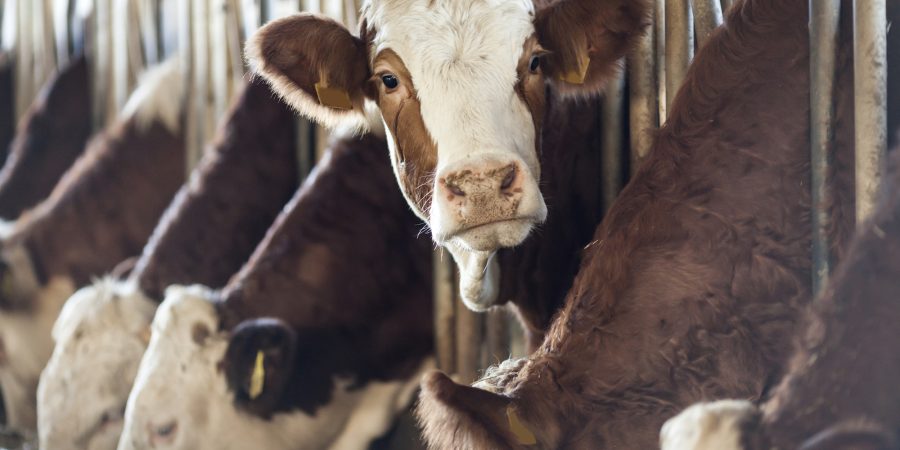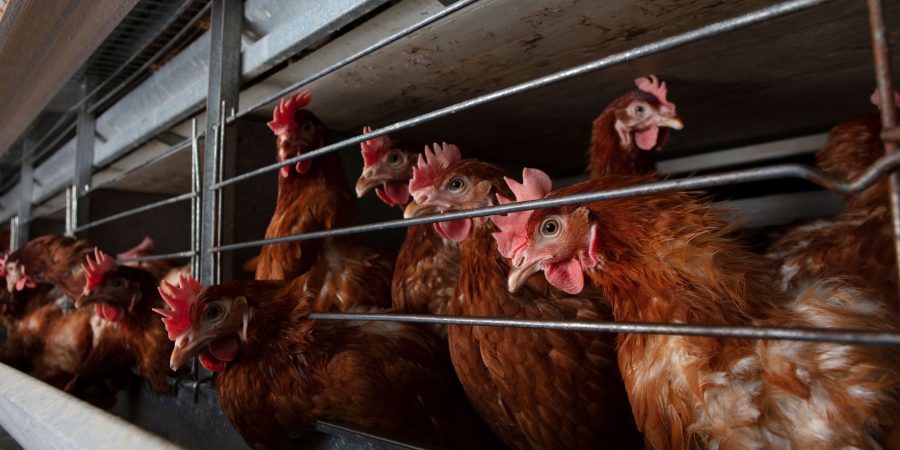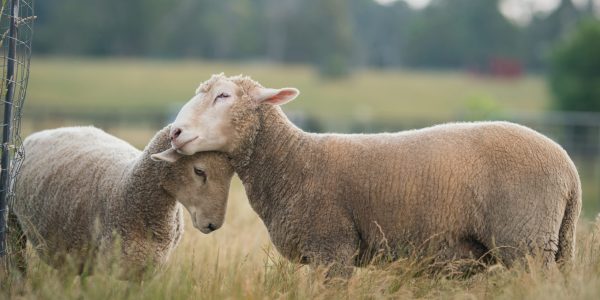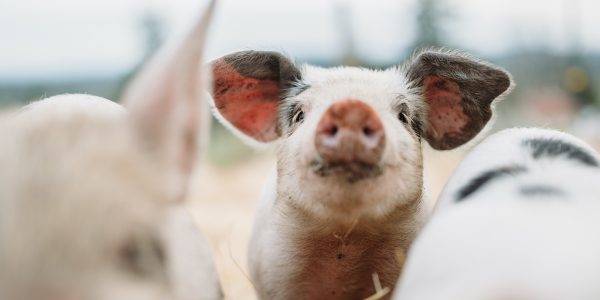UPDATE: The survey and submission opportunity for Victoria’s animal care and protection laws has now ended. Thank you to those who took the time to speak out on behalf of animals in the state.
The drafting of new animal care and protection laws in Victoria provides a unique opportunity to modernise and align the law with community expectations for the treatment of animals. Sadly, the draft laws are falling well short of achieving that goal. But that’s where you come in …
Victorians have until this Sunday, October 16th to comment on the draft legislation – which will still exclude the majority of animals in human care from the same legal protections afforded to our dogs and cats – purely for commercial reasons and despite the fact that all animals share the capacity to suffer.
Now, more than ever, animals in Victoria need you to speak up for them. This is a rare opportunity for you to shape and create a kinder future for all animals in Victoria, free from legalised cruelty. Follow the guide below to make a submission to the Victorian Government and let them know you expect Victoria’s new laws to genuinely care for and protect all animals from cruelty.
How to have your voice heard
Your submission doesn’t need to be complex or overly formal. You can simply say that you feel all animals should be properly protected by the new laws, provide the key points (below) in your own words — and remember to include your name, address and contact details.
Details of the new plan, the directions paper and how to submit are on the Engage Victoria website. You will need register to upload your submission.
You can either:
- Upload a written submission and complete the survey together (note: the survey is mandatory when uploading a written submission). This is the most powerful option for animals — please try to prioritise this written submission option with the key points below.
- Complete just an online survey only. Note: this option simply asks you your areas of interest, however, it won’t allow you to call out the key gaps in the new legislation.
Be sure to get your submission or survey in by midnight on Sunday, 16 October 2022 to make it count!
What are the fundamental issues with the plan?
Victoria’s animal welfare laws are well overdue for an overhaul. Current laws are out of step with community expectations and modern science. The Animal Care and Protection Laws Plan is presented by the Victorian Government as the solution, providing a new set of laws for how animals can be legally treated in Victoria.
The plan aims to modernise animal welfare laws, deter animal cruelty, and provide animals in Victoria with better care and protection. These new laws will replace the outdated Prevention of Cruelty to Animals Act, developed in 1986.
The problem is that under the draft plan, most animals will still be denied the care and protection from cruelty they so deserve. As is currently the case, animals used in farming, human ‘entertainment’ or for commercial purposes would remain excluded from the animal cruelty laws designed to protect them.
Rather than formulating laws to protect animals based on their needs as sentient beings, their level of legal protection under the government’s plan is instead being determined by how humans and industries want to use them. Ultimately, these new laws will protect and care for human interests, not animals.
They recognise sentient beings but won’t protect them
For the first time in Victoria’s history, the new laws will finally acknowledge and explicitly recognise that animals are sentient. After years of caring people – and scientists – speaking up for animals, our laws would finally acknowledge that animals feel, perceive their environment and experience a range of positive and negative emotions, including pleasure, and pain.
Whilst the recognition of sentience isn’t applied to spiders and insects under these new laws, this is a significant step forward in aligning Victoria’s animal welfare laws with community expectations and modern science.
Left out in the cold
But there’s a ‘catch’. Animals like cows, sheep, chickens, pigs, horses, greyhounds, kangaroos and many more won’t receive any protection at all, from cruel and outdated practices that are known to subject them to pain, suffering and a life of misery.
In short, the new laws:
- Fail to require pain relief for most painful or invasive practices used in farming — like castration, dehorning or tail cutting.
- Allow intensive confinement like battery cages for hens and farrowing crates for mother pigs.
- Mean that farmed animals and other animals used for entertainment like greyhounds and horses fall through the cracks of the laws that are supposed to protect them, and allow them to endure legalised cruelty.
- Continue to allow cruel recreational pursuits like duck shooting, commercial kangaroo shooting and painful fishing practices.
Under the draft laws, these animals are placed into a different category and have their ‘care and protection’ rights governed instead by industry ‘Codes of Practice’ and ‘Standards’ or permitted under other laws. These ‘Codes of Practice’, ‘Standards’ and upcoming ‘Regulations’ are designed and set up by the industry, for the industry — not for the animals.
‘Codes of Practice’ and ‘Standards’ allow harmful treatment of farmed animals, animals used for ‘entertainment’ and some others used for commercial purposes, that would otherwise be considered cruelty offences.
You can read more about how Australian state laws (including in Victoria) expose farmed animals to legalised cruelty.
Many of these cruel practices will remain legal under the new laws, which you are welcome to point out in your submission.
This image contains content which some may find confronting

Submission guide
Key points that need to be addressed in the new laws
Addressing these key points will help close the alarming gaps in the new laws and ensure all animals are included, cared for and protected from cruelty. Please include these in your submission.
- Applaud and welcome recognition of sentience.
- Ensure all animals receive care, kindness, and protection under the Act by removing exclusions and exemptions that enable them to suffer harm under the Codes of Practice, other laws, or future Regulations.
- All animals, regardless of being ‘categorised’ in a way that supports financial or commercial gain, must be included and protected under this Act.
- Introduce the requirement that all Regulations, Codes and Standards must be modernised to ensure they:
- Are based on independent contemporary science, and reflect community expectations,
- Do not prescribe practices that are inconsistent with the objects, principles and duties outlined in the Act; and
- Develop processes that support compliance with the above requirements.
- Expedite introduction of a new bill following Regulation development.
- Create an Independent Office for Animal Protection that is independent of the Department of Agriculture.
- Reclassify animals used in entertainment to be covered under the Act, such as greyhounds and racehorses. Currently, greyhounds and racehorses are considered ‘agricultural’ and are not protected under this Act.
- Ensure wildlife, such as kangaroos, waterfowl, and other species such as fish which are also managed under other Victorian legislation are protected without exemption or exception from the Act.
- Ban the use of sow stalls and farrowing crates for mother pigs.
- Ban the use of cages for any poultry (battery cages, furnished cages) to enable farmed poultry to freely range.
These issues are expanded on below.
This image contains content which some may find confronting

Key points explained: what to include in your written submission
1. Applaud and welcome the laws recognising sentience.
This is the first time ever in Victoria’s history, that animals have been explicitly recognised, under the law, as thinking, feeling beings who understand their environment, sense the passing of time, plan for the future and feel a range of emotions like pain, joy, love and connection with another. The laws that care for and protect animals must be delivered in alignment with their sentience, and this addition to the new laws is warmly welcomed.
Key point to put in your own words:
1. Recognising sentience is critical and a welcome addition to these new animal welfare laws. It will ensure these laws are updated appropriately to reflect community expectations and modern science. It is critical that our new laws are based on and therefore reflect the care and protection needs of these sentient beings.
2. Make sure the new laws will include, care for and protect all animals.
Octopus, squid, cuttlefish and nautilus have been recognised as sentient under the new laws. But they need to go further to protect all animals from cruelty. Animals used in ‘entertainment’, such as horses and greyhounds, are classified as ‘agricultural’ animals and fall under Codes of Practice that exclude them from these laws and expose them to routine cruelty.
Victorian wildlife, such as kangaroos, are also critically vulnerable and excluded from these new laws when hunted to supply the ‘pet food’ and other commercial industries.
Key points to put in your submission:
2a. All animals, regardless of being ‘categorised’ in a way that supports financial or commercial gain, must be included and protected under this Act.
2b. In addition to squid, cuttlefish and nautilus, include other decapods, particularly farmed decapods such as prawns, in the definition of ‘animals’ and thereby covered by the new laws.
2c. Reclassify animals used in entertainment to be covered under the Act, such as greyhounds and racehorses. Currently, greyhounds and racehorses are considered ‘agricultural’ and are not protected under the new laws.
2d. Ensure wildlife, such as kangaroos, waterfowl, and other species — such as fish– which are also managed under other Victorian legislation are protected without exemption or exception from the Act.
3. Remove exemptions and the exclusion of animals under industry set ‘Codes of Practice’, ‘Standards’ and future ‘Regulations’.
Excluding animals used by industries exposes them to routine acts of cruelty and in many cases, lives of deprivation. This is how the current Prevention of Cruelty to Animals Act treats animals. That is, it protects and unprotects them based on human ‘use’ of the animals. And so, the new laws will change nothing for the majority of animals in Victoria. It’s important these exclusions are called out and rectified as quickly as possible.
Several key points you can put in your submission:
3a. Introduce a requirement in the new laws that all Codes, Standards and any future Regulations must be modernised to ensure they:
- Are based on independent contemporary science, and reflect community expectations.
- Do not prescribe practices that are inconsistent with the objects, principles and duties outlined in the Act.
- Develop processes that support compliance with these above requirements.
3b. Expedite development of regulations, making them mandatory and without exception or exemption, ensuring they:
- Are based on independent contemporary science, reflect community expectations, and
- Do not prescribe practices that are inconsistent with the objects, principles and duties outlined in the Act.
3c. Expedite introduction of a new bill following regulation development.
You can also choose to reiterate the following point under this heading:
3d. Ensure wildlife, such as kangaroos, waterbirds, and other species — like fish, which are also managed under other Victorian legislation — are protected without exemption or exception from the new laws.
4. An Independent Office of Animal Protection.
It is a conflict of interest for Agriculture Victoria to determine policy, inspect and prosecute animal cruelty offences when it is also tasked with the promotion of agricultural activities.
An Independent Office of Animal Protection as a separate statutory enforcement agency is needed to monitor and investigate matters impacting on animal welfare. This body would have the authority to recommend changes to policy and make decisions that are first and foremost in the interests of animals.
To ensure its ‘independence’ from vested interests, particularly from commercial agricultural interests, its reporting structure would not reside within the agriculture portfolio. Instead, it is suggested it sit in the Attorney General’s or Premier’s Department.
Key point to put in your own words:
4. Enable the establishment of an Independent Office of Animal Protection to monitor and investigate matters impacting on animal welfare, and be an Agency without conflict that recommends changes to policy and makes decisions that are first and foremost in the interests of animals.
5. Ban the use of cages and crates for pigs and chickens.
The new laws will continue to allow mother pigs to be locked up and grossly confined to farrowing crates, causing them extreme stress and depression and impacting the health and well-being of their babies. Read more about the impact of farrowing crates on mother pigs and piglets.
Egg-laying hens will also continue to suffer under the draft laws which will still allow them to be confined in battery cages, with no access to the outdoors to stretch their wings or roam freely.
Key points to put in your submission:
5a. Ban the use of sow stalls and farrowing crates for mother pigs.
5b. Ban the use of cages for any poultry (battery cages, furnished cages) to enable farmed poultry to range.
Your guide to taking the survey
Below are survey questions available on the review website, starting with Question 6 (as the first 5 questions relate to your location and demographic information). We have selected a range of answers for the questions below that would reflect better outcomes for animals if adopted under the review of the Act, and suggest you choose the one you most agree with.
Q.6 Which three policies are you most concerned about, with 1 being the policy that concerns you most?
- Animals covered by the new laws
- Cruelty
- Application of the new laws
Q7. Which three policies are the most important to you for improving animal care and protection in Victoria, with 1 being the most important?
- Animals covered by the new laws
- Recognising sentience
- Application of the new laws
Q8. Which three policies will have the biggest impact on you, with 1 having the biggest impact?
- Application of the new laws
- Recognising sentience
- Animals covered by the new laws
Thank you for being a voice for animals!
Thank you for taking the time to speak out for the animals who need us, and helping to create a kinder future for all animals in Victoria.








